Talk is cheap, particularly when it comes to feminism and new year’s resolutions. Anyone worth their salt is a feminist now, it’s career and social suicide not to be. And yet, for all of the word and column inches spilled in the name of feminism, all too often nothing actually gets done.
Contemporary feminism, it feels, deals in problems and not solutions. From women on board to period poverty, the gender pay gap to everyday sexism and beyond, we share our experiences, recognise the problem and then wait for change in slow motion.
And so, Time’s Up feels like a welcome start to 2018. Hailed as a counterpart movement to #MeToo, the initiative was announced with a full-page ad in The New York Times yesterday. The ad took the form of an open letter which read ‘the struggle for women to break in, to rise up the ranks and to simply be heard and acknowledged in male-dominated workplaces must end; time’s up on this impenetrable monopoly. It announced that 300 prominent, powerful and privileged women actors, agents, writers, directors, producers, lawyers and entertainment executives had come together to forge an initiative aimed at fighting sexual harassment, not just in Hollywood but in workplaces around the world.
The last part of that mission statement is crucial: ‘not just in Hollywood’. One of the biggest problems with contemporary feminism, despite all our talk of intersectionality, is that people only ask how they can help others like themselves and do not look beyond that and think about the bigger picture. If a woman at the top of Hollywood, with all her power, influence and financial security, cannot avoid sexual harassment then a woman with little to no power or financial security is even worse off. This is what the women of Time’s Up have not merely acknowledged but acted upon: sexism and the harassment it engenders is not a local endemic but a global epidemic.
Some of the women involved include America Ferrera, Natalie Portman, Rashida Jones, Kerry Washington, Tina Tchen (a lawyer who also served as Michelle Obama’s chief of staff), Eva Longoria, Nina Shaw, Reese Witherspoon, Maria Eitel (an expert in corporate responsibility and co-chair of the Nike Foundation) and Shonda Rhimes and, in an attempt to facilitate real change they have established a legal defence fund (the pot for which currently contains $13 million worth of donations). The intention is that this will be used to help women from all walks of life protect themselves from sexual misconduct at work and the implications of reporting it.
Other aims include working towards legislation that will actively penalise companies who are complicit in harassment and discourage the use of nondisclosure agreements to silence those subjected to it. Those behind Time’s Up have also committed to pushing for gender parity in Hollywood and requested that any women walking the red carpet at this year’s Golden Globes raise awareness by wearing black.
If the #MeToo movement faced constructive criticism for being too white, too privileged or too aimless then Time’s Up is the perfect way to harness its latent energy and ensure that it is converted into action. It sends the message that what started as shared storytelling can become collective commitment to change.
As with all serious structural issues it would be naïve to think there is a silver bullet. It would be unfair to criticise either #MeToo or Time’s Up on the basis that they can’t immediately solve sexual harassment at work or salve the scars of women who have experienced it. No serious societal change in the history of humanity was ever so easy, this will be no different. It’s entirely possible that it won’t meet our expectations and we need to be prepared for that because anything worth fighting for requires two things: persistence and patience.
MORE: Check out the red carpet at last-year's Oscars...
Oscars 2017 - Red carpet and winners
 1 of 26
1 of 26Viola Davis Academy Awards 2017
 2 of 26
2 of 26Kirsten Dunst Academy Awards 2017
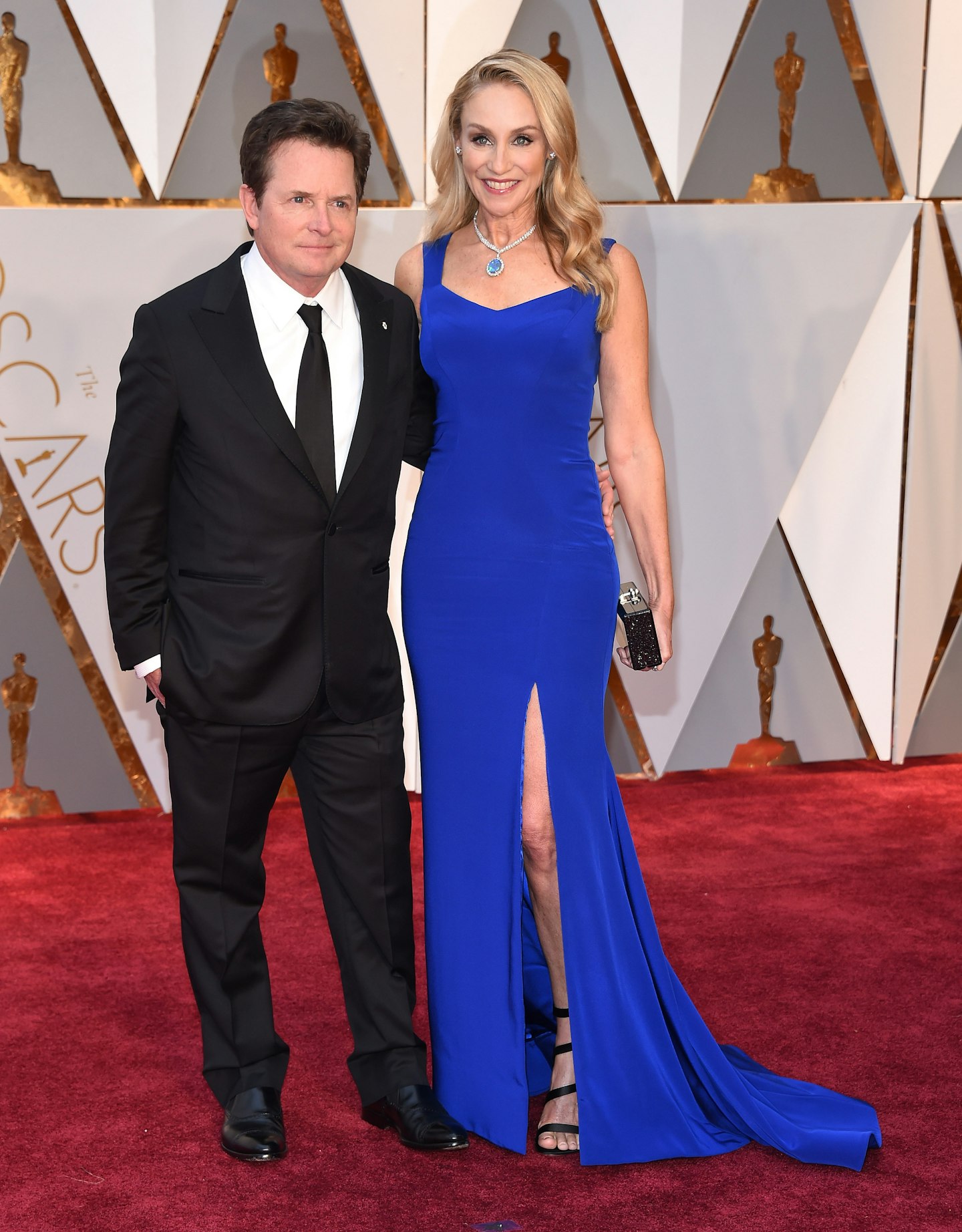 3 of 26
3 of 26Michael J Fox and Tracy Pollan Academy Awards
 4 of 26
4 of 26Jessica Biel Academy Awards
 5 of 26
5 of 26Emma Stone Academy Awards
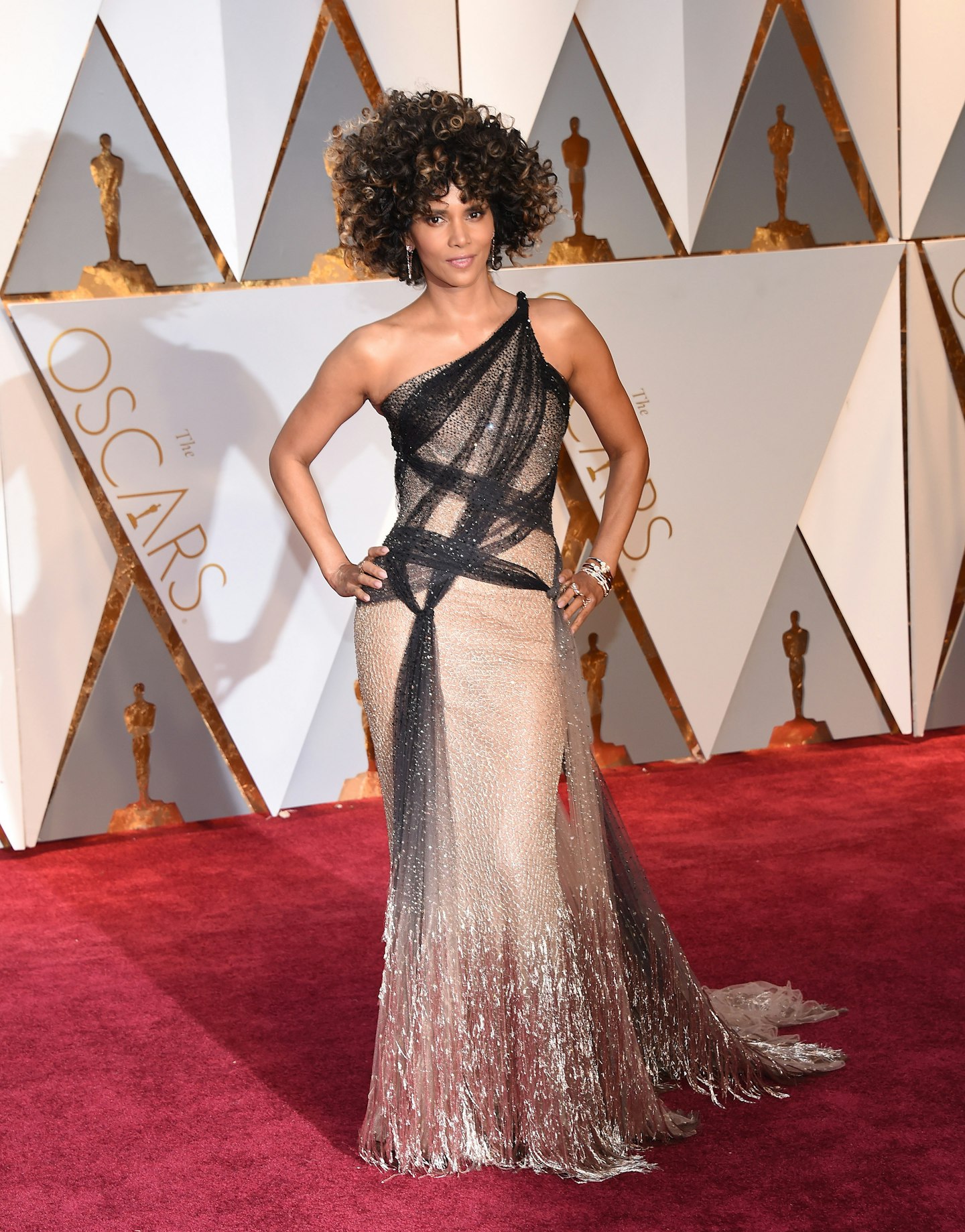 6 of 26
6 of 26Halle Berry Academy Awards 2017
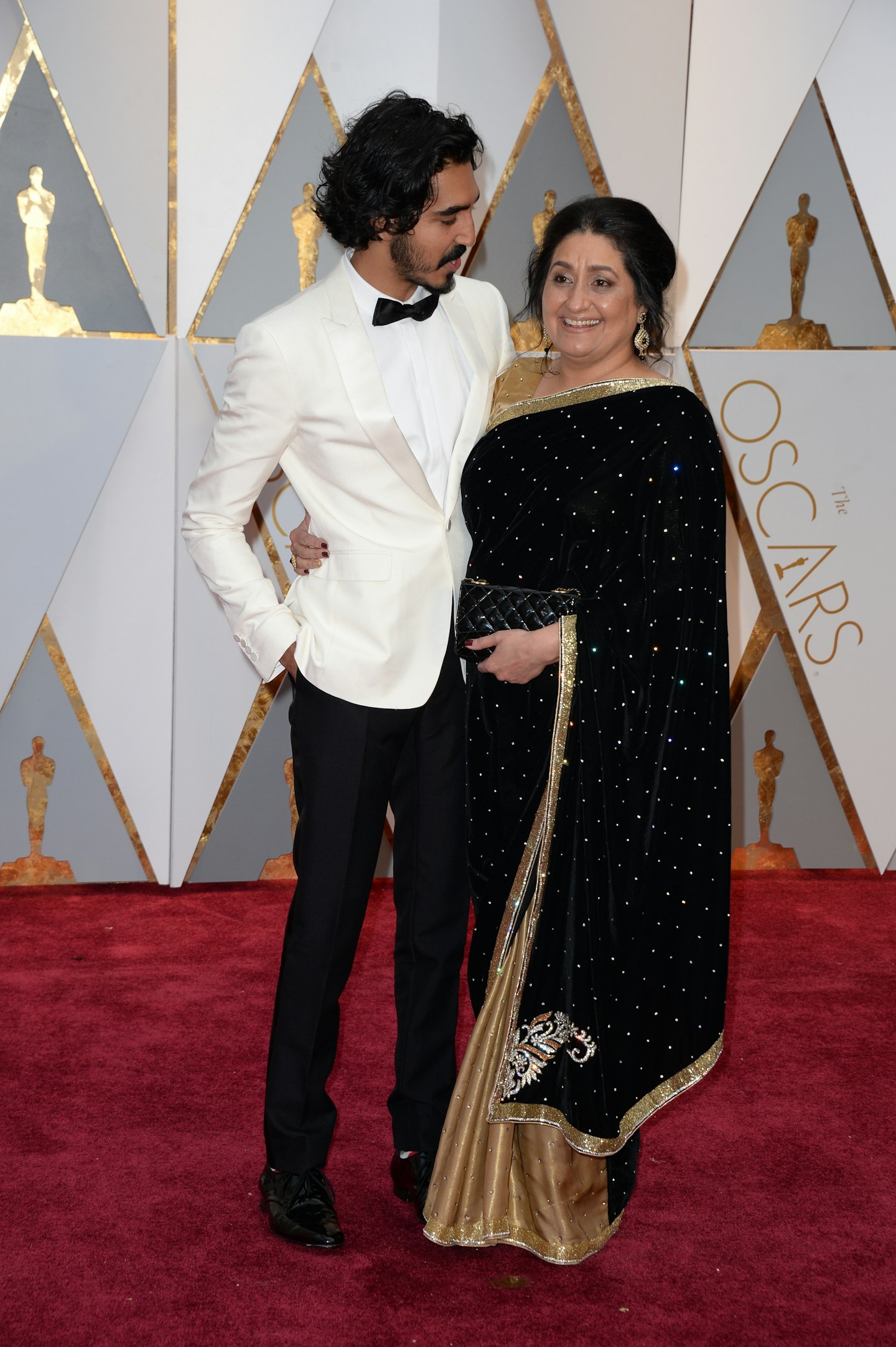 7 of 26
7 of 26Dev and mum Anita Patel at the Oscars
 8 of 26
8 of 26Ryan Gosling Academy Awards
 9 of 26
9 of 26Keith Urban and Nicole Kidman Academy Awards
 10 of 26
10 of 26Jackie Chan Academy Awards
 11 of 26
11 of 26Riz Ahmed Academy Awards 2017
 12 of 26
12 of 26Dakota Johnson Academy Awards
 13 of 26
13 of 26Karlie Kloss Academy Awards
 14 of 26
14 of 26Ginnifer Goodwin Academy Awards
 15 of 26
15 of 26Emma Roberts Academy Awards
 16 of 26
16 of 26Leslie Mann Academy Awards 2017
 17 of 26
17 of 26Casey Affleck Academy Awards
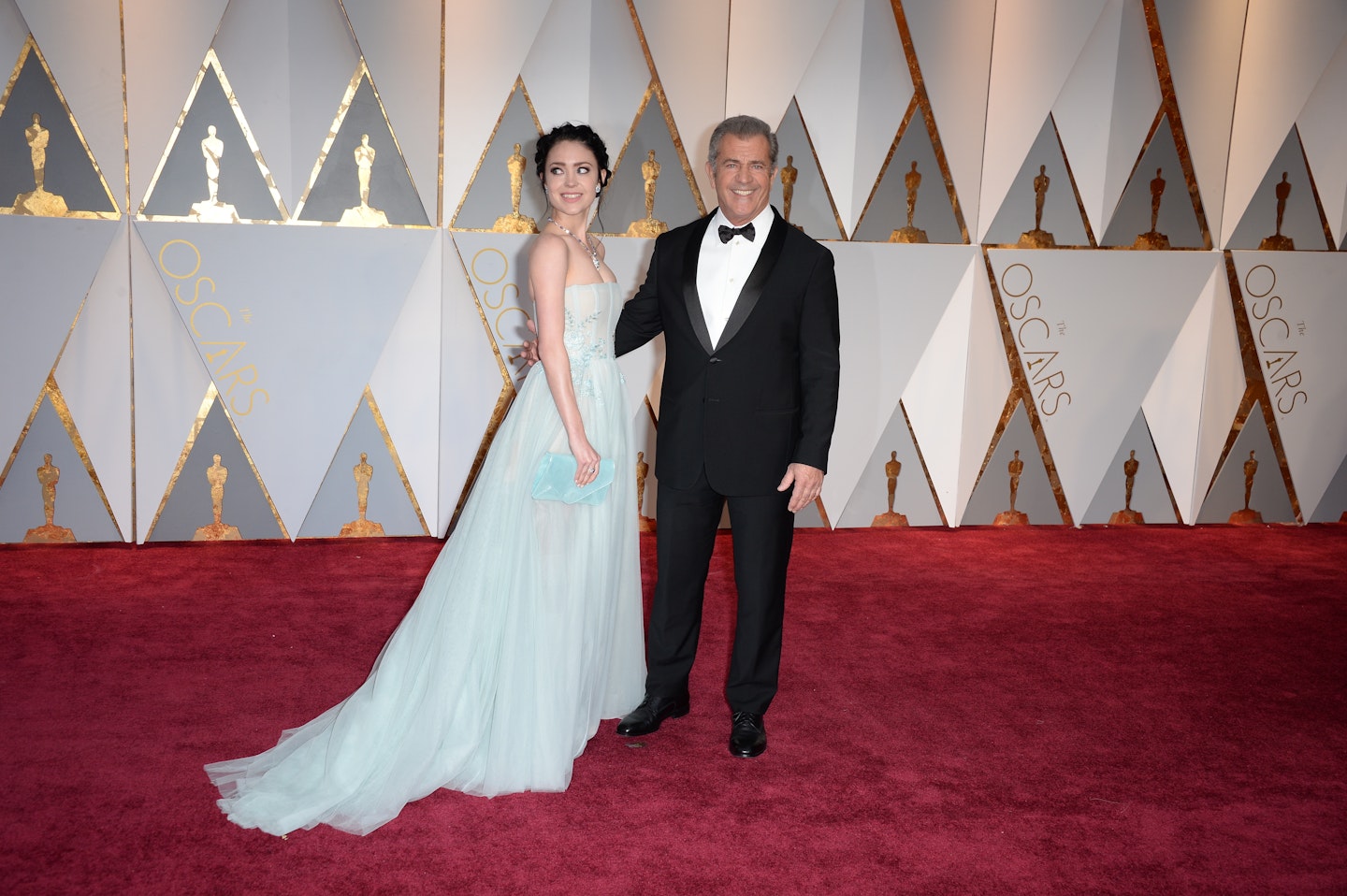 18 of 26
18 of 26Rosalind Ross and Mel Gibson Academy Awards
 19 of 26
19 of 26Janelle Monae Academy Awards
 20 of 26
20 of 26Chrissy Teigen and John Legend Academy Awards
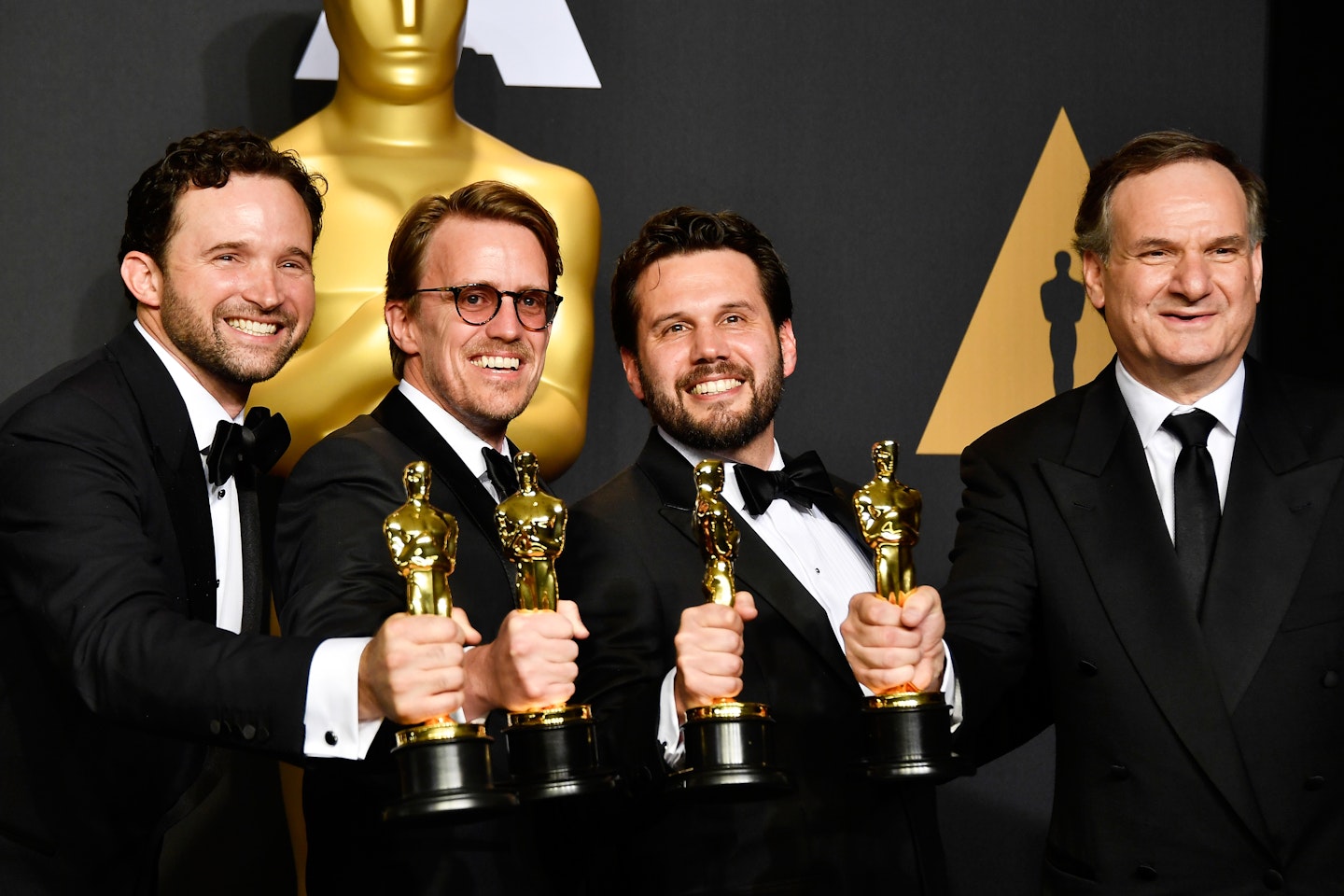 21 of 26
21 of 26Dan Lemmon, Andrew R. Jones, Adam Valdez and Robert Legato
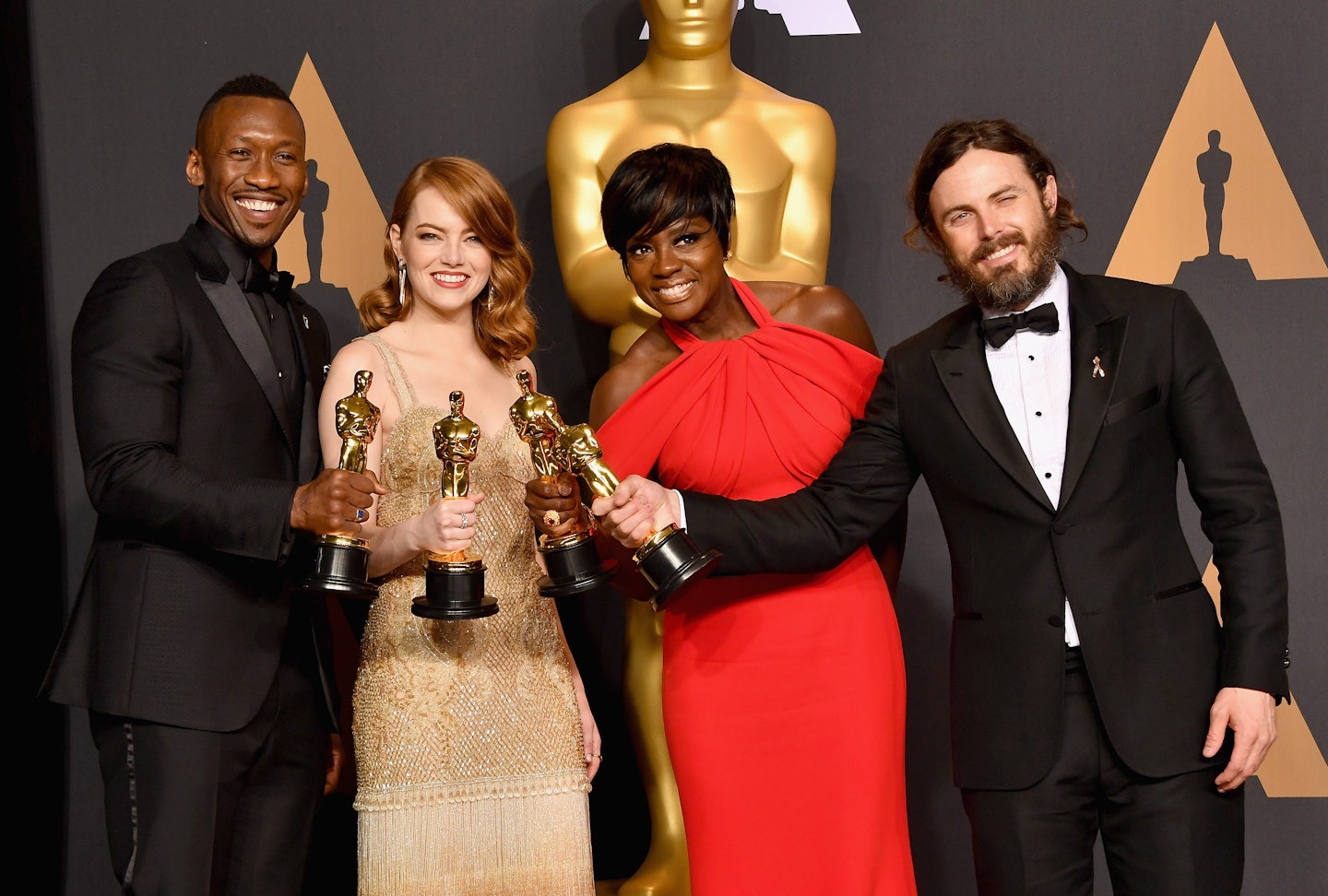 22 of 26
22 of 26Mahershala Ali, Emma Stone, Viola Davis and Casey Affleck
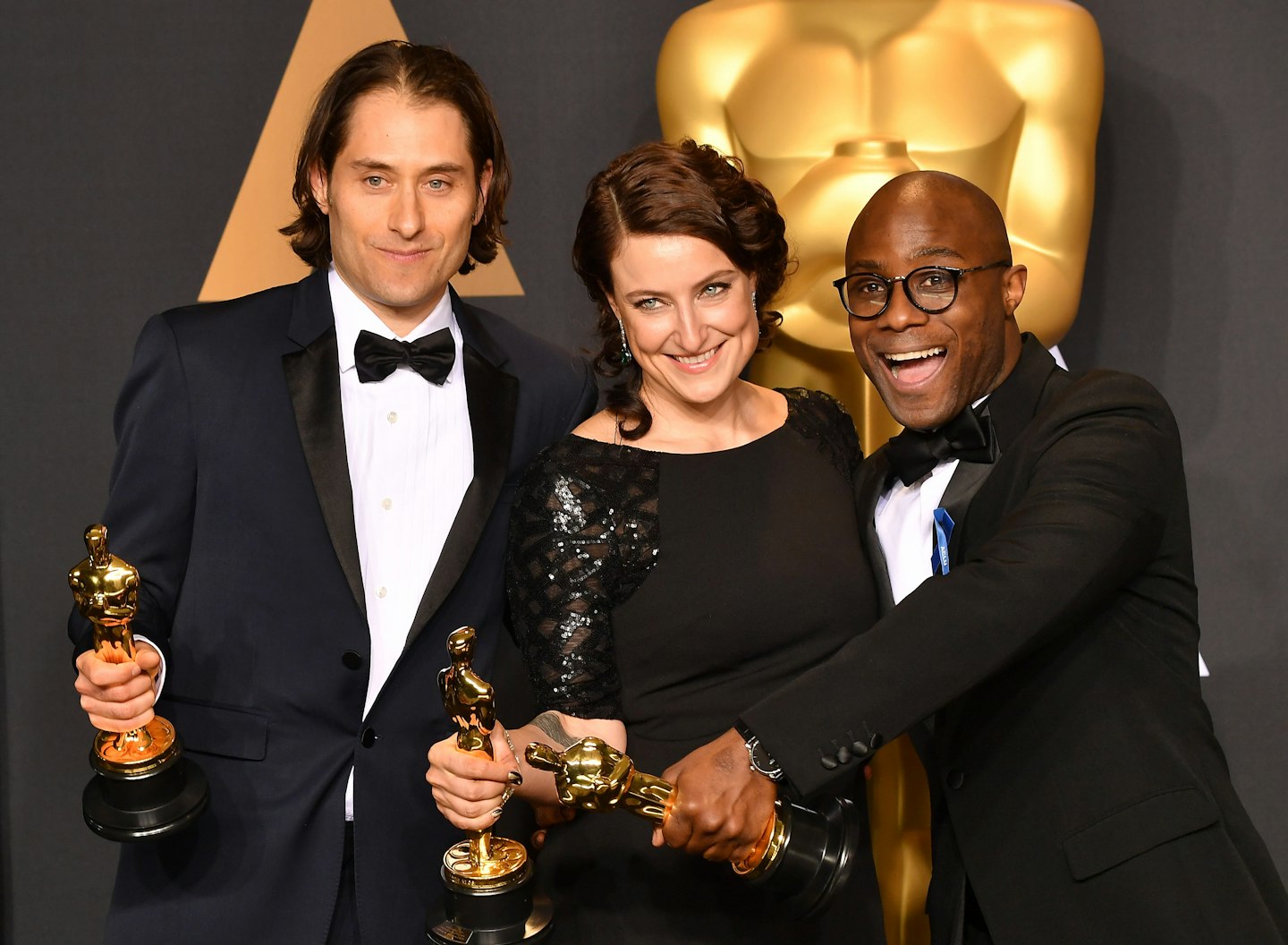 23 of 26
23 of 26Jeremy Kleiner, Adele Romanski and Barry Jenkins Academy Awards 2017
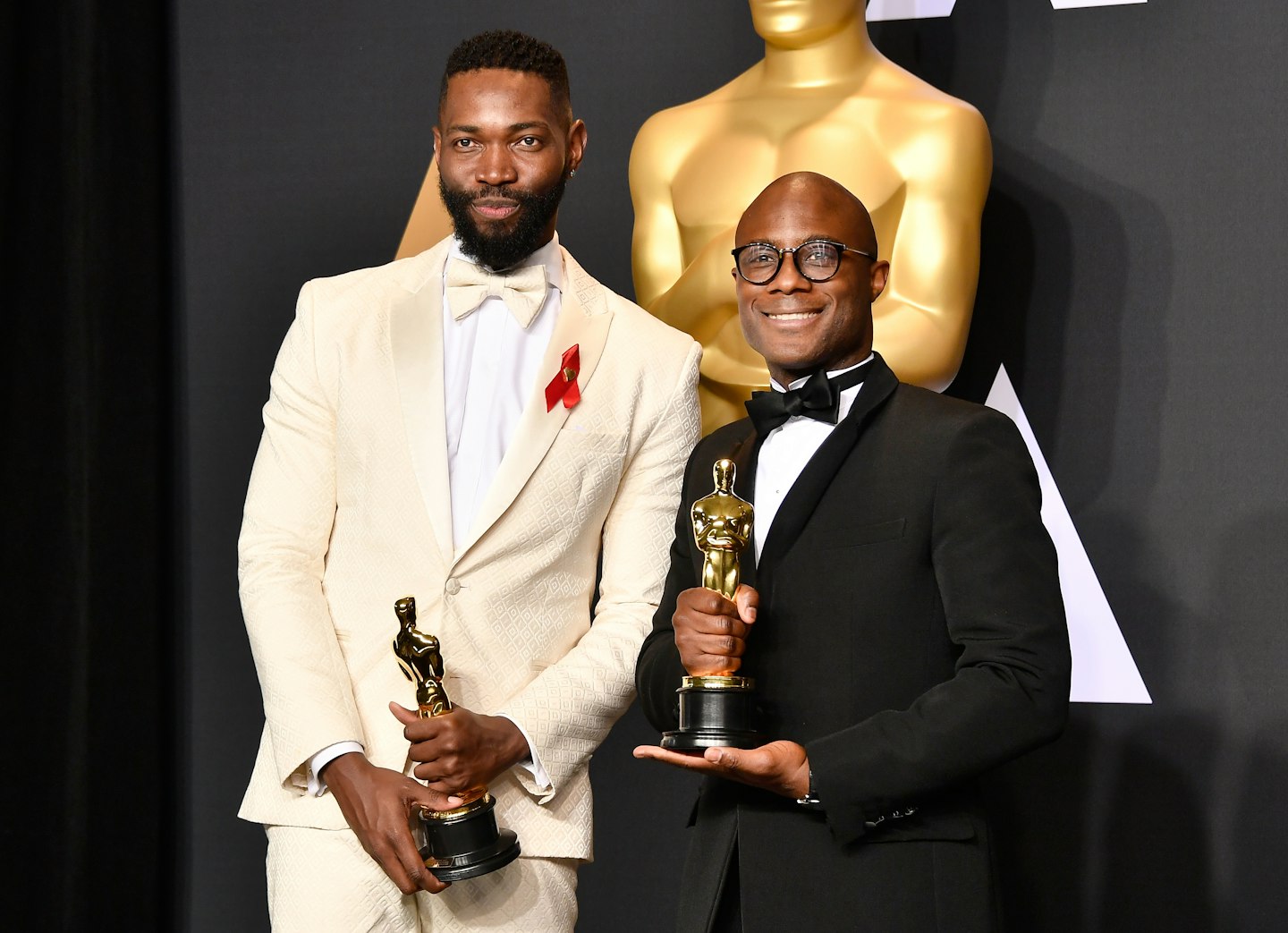 24 of 26
24 of 26Tarell Alvin McCraney and Barry Jenkins Academy Awards
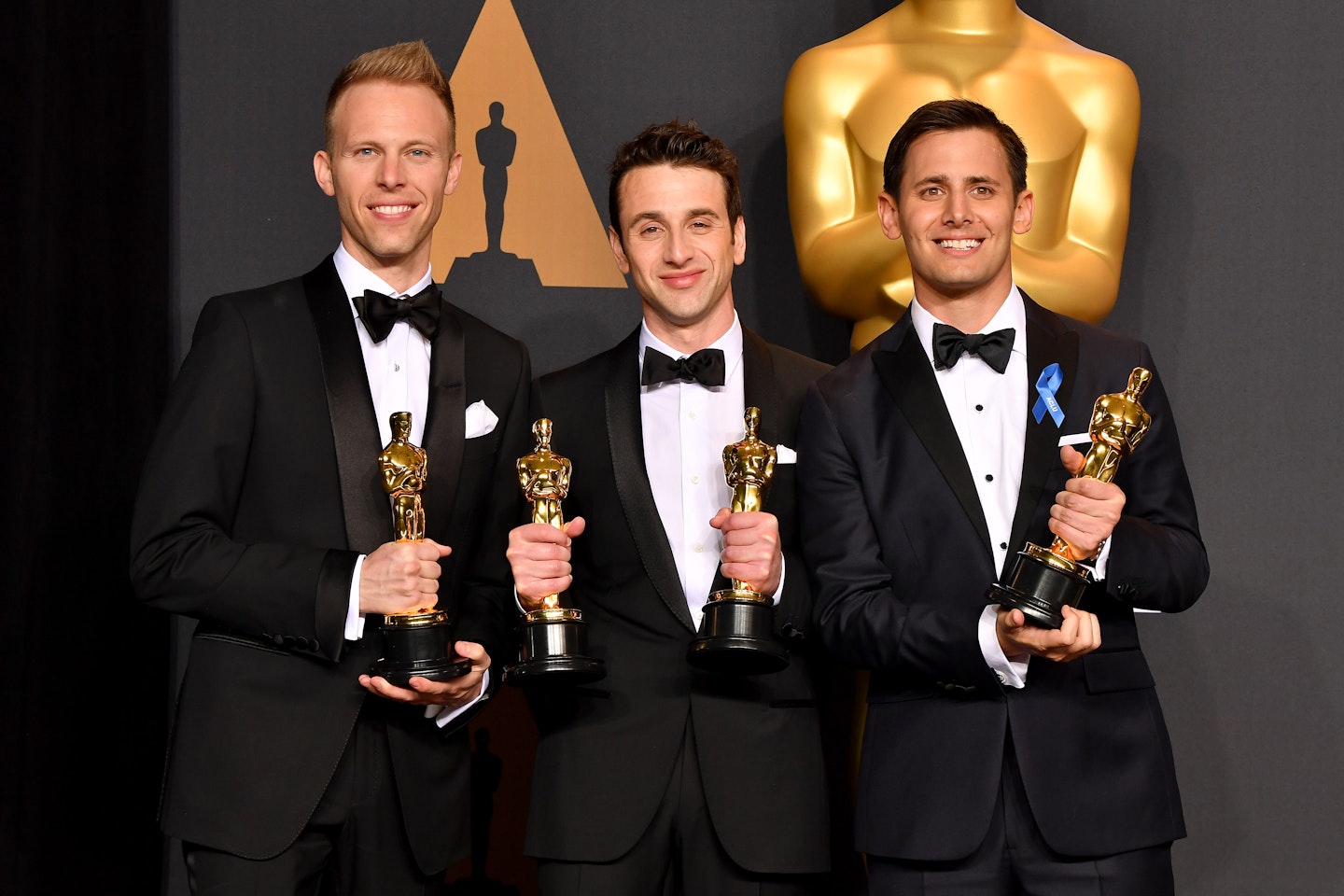 25 of 26
25 of 26Justin Paul, Justin Hurwitz, Benj Pasek
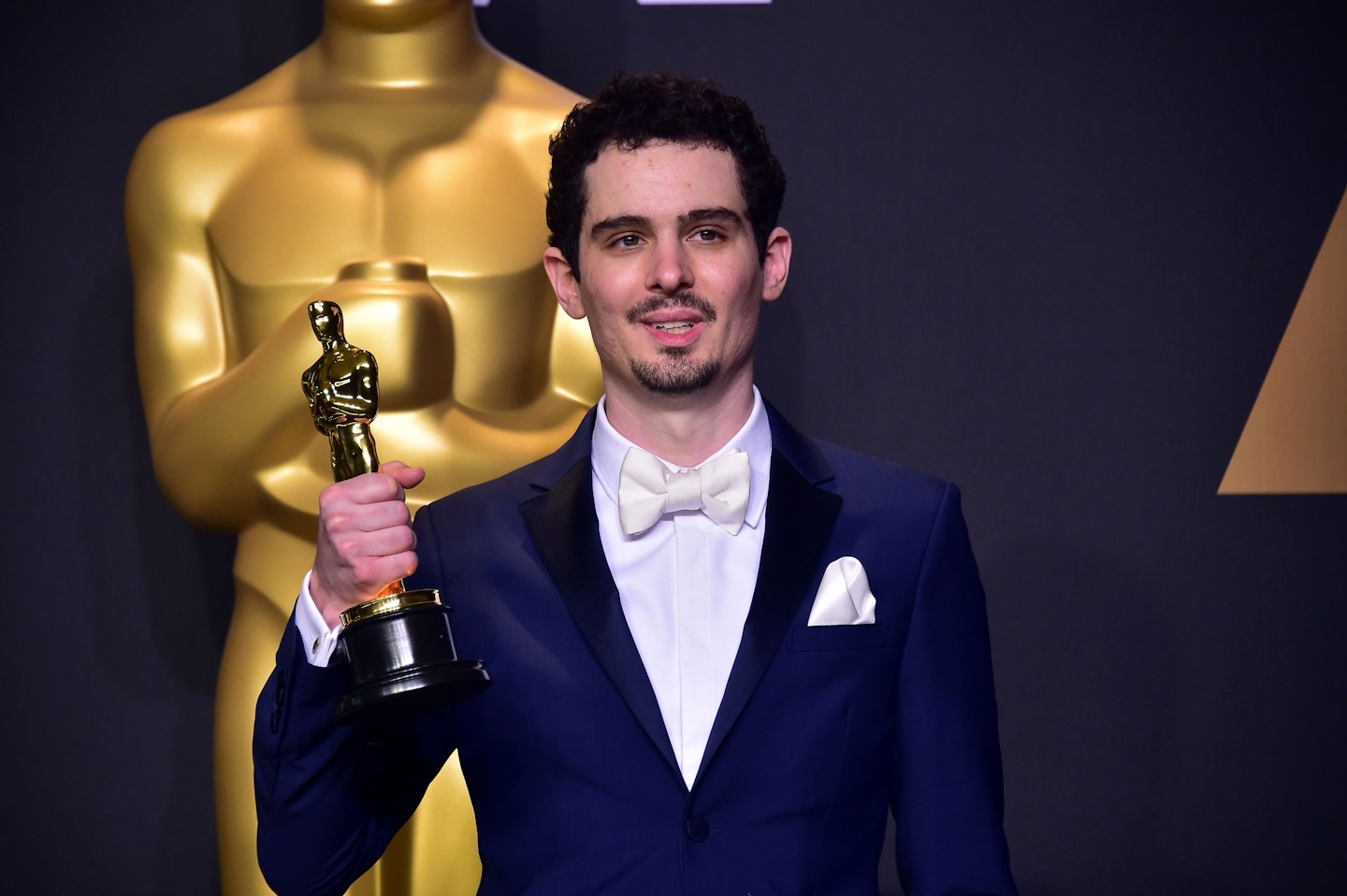 26 of 26
26 of 26Damien Chazelle
Indeed, we all know that there are hidden women everywhere who didn’t or couldn’t share their stories last autumn. Perhaps they did not have the funds to fight, perhaps they could not afford to lose their job, perhaps they simply weren’t ready to talk. Whatever the reason, concrete support like that included within the Time’s Up initiative will go some way to changing that.
Since the investigation into Harvey Weinstein’s misconductwhich caused Tarana Burke’s #MeToo to be reignited and picked up on a global scale, a bright light has been shone on behaviour in other industries. Over Christmas, another New York Times investigation went live, this time looking at sexual harassment and misconduct at Vice. It detailed hundreds of examples of bad behaviour and several instances of women being paid off and asked to sign non-disclosure agreements, Vice responded by unequivocally acknowledging that they had let their women employees down. We shouldn’t congratulate a company for doing what they should be doing but it’s notable that there was no denial and no empty apology but instead an acknowledgment and commitment to change.
Equally, in Westminster, we have seen misbehaving ministers sacked by the Prime Minister and today there are reports that she is planning a cabinet reshuffle which will see more women in top positions. Of course, last year’s revelations about sexual misconduct in parliament are connected to this and if the ripple effect of them is that this year begins with more women in government then we know that change is coming.
This is what real change looks like. It looks complicated but it looks like action. It is pressure from both the bottom and the top. It is a commitment from people, whoever they are, to do what they can with the power and resources that they have. If women have one mantra for 2018, the year that we will celebrate the centenary of some women being granted the vote for the first time in history, it should be an updated version of the maxim by which the suffragettes lived their lives; let’s promise to look beyond ourselves and turn ‘deeds not words’ into ‘less talk and more action’.
You might also be interested in:
Follow Vicky on Twitter @Victoria_Spratt
This article originally appeared on The Debrief.
